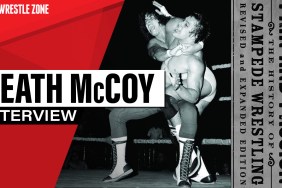Our eighty or so years of being is an amazing race, the amazing race, a marathon sprint to the finish line. But within this marathon, there are shorter lengths to overcome. One of the most difficult races being the colour of skin. Race (at least that which is evident on the exterior) inevitably tightens the path someone can walk, from birth constantly updating a checklist of requirements and expectations for the individual to satisfy, regardless of personality or environment. This is nowhere near as damaging as it may sound, as culture is essential for filling the human need for community safety. However, with the existence of multiple races and cultures, there was always bound to be differences or conflicts in behaviour and attitudes, conflicts that would become hopelessly physical. As one ends another will begin, becoming what we see as history.
While war is most easily identified with differences in colour, suburban incidences and minor catastrophes rouse xenophobic discussion on an almost weekly basis. Anything that is seen as threatening the comfortable status quo of middle-America is cause for finger pointing, most often in the direction of those who are left outside the status quo to begin with. Thereâ<80><99>s Us, and thereâ<80><99>s Them. But the conflict grows beyond black and white, filtering into different degrees of blame, distrust, and prejudice, according to each country and the cultures within it. Serbians and Croatians, Australians and New Zealanders, Americans and the French. It can range from forgotten warring, to isolated arguments, to playful half-serious banter. The fact that it underscores the way each individual sees and interacts with the world around them ensures that race is permanently at the fore of any current affair.
But the same regularity soon becomes saturation, when every issue, every crisis, every thing, is somehow motivated by differences in darkness. When in reality, they may be, but not solely. The war, economic policy, and the tabloids are all accused of racism, promoting prejudice or celebrating whites more than minorities. And often this will be totally justified, but in the majority of cases, the storm should have never left its teacup. Over time, the population remains vigilantly aware of what racism means, but desensitized to its application. A word so loaded with centuries of historical definition, and the blood of victims, that applying it to a professional wrestling angle is equivalent of using the constitution as toilet roll.
Professional wrestling has never been a serious form of entertainment. Nor has it ever claimed to be. No other television program has its tongue so firmly in its cheek than the WWE, an appropriate way to consider itself, when its ancestors include freak sideshows, crime rackets, and is motivated exclusively by filling already full pockets. Initially beginning as an extension of the freak show, passed from carnies to backwater entrepreneurs willing to fake matches in order to one up the rising popularity of athletic wrestling, and finally made mainstream by a man who pulled one big rug out from every territorial promoter in the U.S., breaking more unwritten rules than existed. Morality has never been a characteristic of professional wrestling. From day one, the sport was marketed to the lowest denominator by an even lower denominator, and subsequently taboo stereotypes and blatant chauvinism were found to be the easiest way to attract the same attention the bearded lady used to.
Coincidentally, we still have â<80><9c>a bearded ladyâ<80> in the form of Vito, and the same (very few) fractured values left over after ignoring all the others. The current gallery of rogues suggests that they may have deteriorated further, Umaga, Crime Tyme, Khali, Eugene, Finlay, The Highlanders, ad infinitum, suggest that the WWEâ<80><99>s Big Book of Stereotypes is heavily dog-eared, the contents page reads like a completed checklist. Sure, this is no different to any years before, which featured unashamed caricatures of Native Americans, disables, the morbidly obese, the elderly, and any other minority that everyone else has the tact not to touch. Itâ<80><99>s offending to simply imagine what was thrown in the direction of the wastebasket. But bad ideas will continue to infest television while the method of breaking down personas to distorted cartoons of reality is achieving its sole goal, attention. No other company tests the statement â<80>~no publicity is bad publicityâ<80><99> more often than the WWE, and no other company has benefited from bad publicity more than the WWE. Be it inciting violence, or disregarding years of fought-for equality, professional wrestling is responsible for more moral panics than any other sport or show.
Every now and then a fresh angle will tip the balance, and stimulate abnormal throes of criticism, the most recent being Crime Tyme. Two black males in roles that satire the absurdity of gangsta culture, by means of failed crimes and misdirected public chaos. Uproar concerning the stereotype surfaced, specifically the suggestion that African American are not only criminals, but stupid also. Columns were written, forum posters panicked, and for a moment the WWE was the KKK. But in hindsight, the team has cemented themselves as the freshest in years, part of which owing to their â<80>~racistâ<80><99> gimmick.
If you were to study past controversial angles, specifically those who have been given more than a moment of thought, with them came a spike in interest. A big spike. Yet many of them rely on what would be regarded as racist attitudes towards a culture and its people. If these angles are as racist or â<80>~against mainstream normsâ<80><99> as the minority suggests, why do they somehow intrigue the majority. Surely we canâ<80><99>t all be racist. We arenâ<80><99>t, and thatâ<80><99>s exactly why they are so popular. Wrestlingâ<80><99>s chief function is catharsis, offering an outlet for â<80>~badâ<80><99> (entirely human) thoughts that most of us have, and discipline enough to never act upon. Nevertheless, these thoughts, be they racist or sexist or worse, will remain within the individual unless they can indulge them and play out such thoughts in the safety of fiction. The few who take them seriously and eventually act upon them, would just easily gain similar inspiration from the nightly news, or the rantings of a man on a bus. For the rest, wrestling is quite literally a guilty pleasure.
But some will still wail, complaining that the WWE is somehow institutionalizing inequality via tag teams and tights, with its own superliminal form of racism. Ironically, this will be said by the same accounts as those who testify to the WWE being incapable of any significant social impact, and will attest to its frivolity. Make no mistake; the WWE will never do anything groundbreaking. Never. Especially considering how derivative of mainstream culture it is, character development is purposely ignored because writers extract ready made personas from the world, and throw them in the title picture. The most obvious examples being â<80><9c>the Islanderâ<80>, â<80><9c>The Ladies Manâ<80>, â<80><9c>The Cocky Upstartâ<80>, â<80><9c>The Slutâ<80>, all of which who have been duplicated countless times by different faces. Originality has never been the forte of professional wrestling, but entertainment is. Itâ<80><99>s impossible for them to be instigating racism when borrowing entirely from reality, and placing the result amongst poo jokes.
For those still uncomfortable with the political incorrectness, the saving grace of such angles is that they have a brief use-by date, on most occasions fading into disinterest or hostility by the next major pay-per-view. While the common opinion blames their lifespan on a boycott by those offended and the rest finally coming to their senses, the reality is many of the most subversive characters not only go on to succeed but flourish for longer than vanilla black-tights wearers. Think Goldust, The Iron Sheik, Funaki, Roddy Piper, Tajiri, and Yokozuna, who, by stringent standards of taste, embody a low jab to their respective cultures. The true indicator of longevity is relevance. It has been proven that the popularity of professional wrestling is directly related to times of unstable foreign policy, which at its core, means war. The boom/trough model of professional wrestling, when superimposed over the last century, peaks in the 40s, 70s and late 80s/ early 90s, in line with World War 2, the Vietnam/Korean wars, and the Gulf War. In such volatile times, the population involuntarily accumulates an unrest, not quite a hatred, but a stilled momentum brought on by the inescapable chaos of the television. A will to act, and to be affected. And in an attempt to release it civilly and practically, an hour or two of guilty escapism satisfies. And professional wrestling typifies guilty escapism.
Does this then excuse the racism of the WWE? Well it does not excuse the more institutionalized prejudice, such as predominantly Anglo-Saxon title-holders, which is often a fact created to annihilate any defense of the company. Itâ<80><99>s virtually impossible to know if this has any grounding in reality, and therefore cannot be proven or disproven. The inner mechanics can never truly be criticised by a fan, who has no method of differentiating a real work from the real world. But the more general image of racism, that of reinforcing stereotypes with essentialised caricatures of cultures, is vital to the workings of society. Tension needs to be released, either safely or otherwise. If professional wrestling did not provide the service, those needing it would look elsewhere. The problem of racist thoughts or political incorrect ponderings is not extinguished by maintaining political correctness, if anything they are exacerbated by being suppressed. In the end, the core issue isnâ<80><99>t the images or stereotypes being celebrated by the WWE, but what leads people to be entertained by them. The audience are not passive receivers, they have a choice to accept and reject what they are shown, they are the sole determiner of the boundaries of good taste. In the circumstance of children, their parents should act as the intermediary between producer and consumer.
The hand that feeds is always innocent, within reason. When one questions what is being given, they should rather look at if its being taken, and the motivation behind taking it. Racism exists in society, and without its initial creation by citizens between each other the WWE has nothing to reflect upon, nothing to steal from, nothing that the fans really want. Itâ<80><99>s a case of donâ<80><99>t shoot the messenger. Racism is a saddening human urge, but as long as programs allow people to vicariously challenge the boundaries of what they know is wrong for brief moments, it will remain exactly that, another urge satisfied.
If you would like to contact me, my email is TheButchershopColumn@hotmail.com
Over and Out
Jim â<80><9c>The Butcherâ<80> Browne








